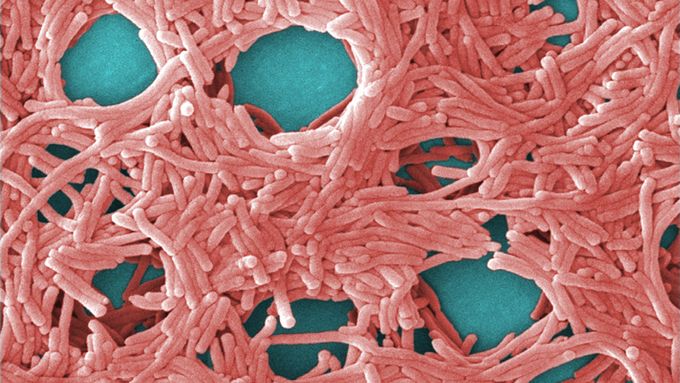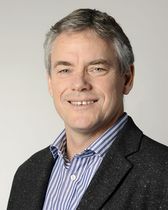Fight against Legionella Intensified in Switzerland: New "LeCo" Project Launched
03.03.2020
Legionella is a type of bacterium found naturally in freshwater environments, lakes and streams. It can become a health concern when it grows and spreads in man-made plumbing systems. Cases of Legionnaires’ disease reached an all-time high in Switzerland: 582 cases were recorded in 2019. To address this, a four-year project called "Legionella control in buildings" (LeCo) has been launched. Led by Eawag, Swiss TPH and LeCo partners investigate how the risks associated with these bacteria can best be managed.

Large grouping of Legionella pneumophila. (Photo: Janice Haney Carr/CDC)
Legionnaires' disease is becoming more common in Switzerland, with 582 cases recorded in 2019 by the Federal Office of Public Health (FOPH). The disease is fatal in five to ten per cent of cases, despite treatment with antibiotics.
The causative agent is mostly Legionella pneumophila, a type of bacteria found in water. Problems may arise if contaminated fine water droplets are inhaled. This can occur wherever such droplets are generated - in car wash facilities, air-conditioning cooling systems or industrial cooling towers. Under certain conditions, however, Legionella can also develop in drinking water, which make fountains, steam baths and showers potential sources of infection.
Legionella control efforts intensified
Over the next four years, the "Legionella control in buildings" (LeCo) consortium will be investigating how the risk of shower-related Legionella infection can be assessed. An improved sampling strategy will be developed and the use of rapid detection methods to identify contamination in buildings will be optimised. The consortium also aims to explore the relationship between environmental infection sources and cases of disease, and to gain new insights into the ecology of Legionella in drinking water systems.
Swiss TPH will investigate human cases of Legionnaires' disease and their risk exposures with the aim to link human and environmental occurrence of Legionella and to study their pathogenicity. "The insights from this will help us together with Tim Julian from the Eawag to determine the likelihood of an infection at various Legionella concentrations. Such mathematical models are essential to understand and predict and eventually control legionnaire's disease in Switzerland," said Daniel Mäusezahl, Head of the Household Health Systems Research Group at Swiss TPH.
The project will also be focusing on awareness-building and increased communication among the various actors concerned. In addition, the consortium aims to strengthen national and international cooperation in this field.
LeCo is funded by the Federal Food Safety and Veterinary Office (FSVO), the Federal Office of Energy (SFOE) and the Federal Office of Public Health (FOPH) with CHF 2.5 million.
The consortium partners are: Eawag: Frederik Hammes, Drinking Water Microbiology Research Group (Microbiology) and Tim Julian, Pathogens & Human Health Research Group (Risk Assessment), Swiss TPH: Daniel Mäusezahl, Household Health Systems Research Group (Human Health), HSLU: Franziska Rölli, Hygiene & Health Research Group (Building Technology & Energy) Cantonal Laboratory Zurich: Hans Peter Füchslin, Legionella Unit (Monitoring and Control)
Contact

Daniel Mäusezahl
PD, PhD, Prof. Dr.
Scientific Group Leader
+41612848178
daniel.maeusezahl@swisstph.ch
Stay connected
Subscribe to our newsletter and get all the latest research news, project updates, course and event listings from Swiss TPH.